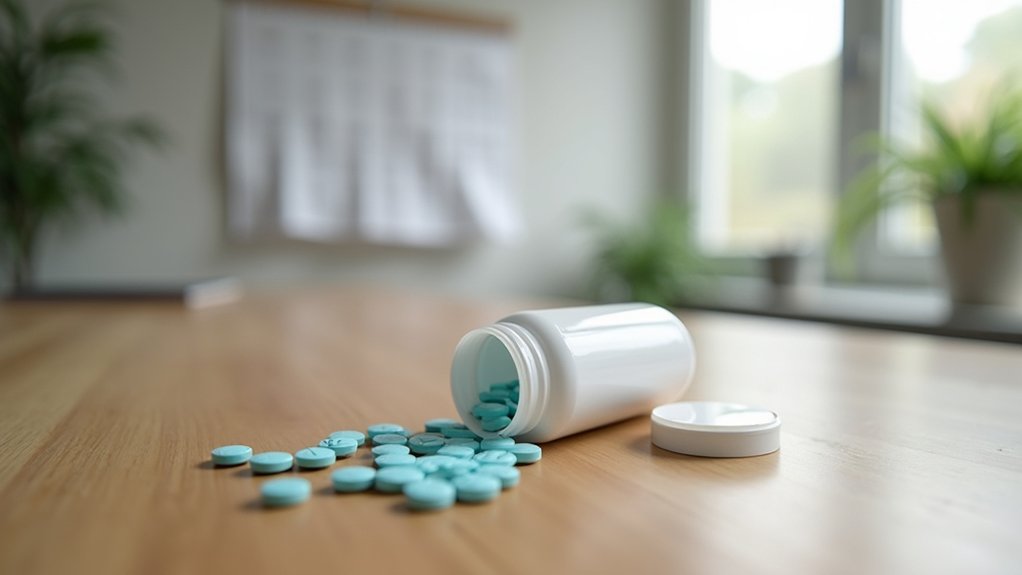Unmasking the Hidden Struggle of High-Functioning Depression
Depression isn’t something that you can always see in other people or recognize easily in yourself. Depression lives under the surface for some people, and it can make it very challenging to go about their day-to-day lives. But to the rest of us, they seem to be doing just fine. Some people refer to that as “high-functioning depression.”
High-functioning depression isn’t a formal diagnosis. It’s a helpful way to describe how some people keep up a relatively stable life while living with depression. Also known as persistent depressive disorder (PDD), high-functioning depression is a subtype of depression. People with this type of depression can maintain a seemingly normal outward appearance and go on to fulfill their responsibilities at school, work, and personal relationships. Still, under the surface appearance, they are experiencing persistent feelings of emptiness, sadness, and loss of motivation.
At Immersive Recovery Center in Encinitas, California, through addiction treatment, dual diagnosis treatment, and therapy services, we help men struggling with depression cope with their mental health issues in effective ways.
What Does High-Functioning Mean?
People with high-functioning depression frequently develop coping mechanisms that allow them to keep up the appearance of normalcy. They may be excelling in their careers, maintaining social relationships, and appearing to be self-assured. However, this outward success can mask their struggles inside and prevent them from getting help.
Recognizing High-Functioning Depression
Although high-functioning depression might not be recognizable at first, it presents with a variety of symptoms that can have a significant impact on a person’s well-being, such as:
- Constant sadness and emptiness: Experiencing a lingering feeling of emptiness, sadness, or hopelessness that doesn’t go away.
- Loss of pleasure and interest: A loss of interest in activities you used to enjoy or get pleasure from.
- Low energy and feeling fatigued: Feeling drained most of the time, even after getting plenty of sleep. You find it difficult to get motivated.
- Problems with concentration: Difficulty focusing, making decisions, or remembering things.
- Problems with sleeping: This includes insomnia, disturbed sleep, or oversleeping.
- Appetite changes: Decreased or increased appetite, which leads to weight changes.
- Feelings of guilt, hopelessness, or worthlessness: Extreme self-criticism, feeling inadequate, and that things won’t get better.
- Thoughts of suicide and death: Repeated thoughts of suicide or death, with or without a definite plan.

Signs You May Be Dealing with High-Functioning Depression
Despite your ability to function, high-functioning depression may be taking a toll on various aspects of your life, including:
- Your relationships: Having difficulty connecting with others, shrinking from social activities, and coping with strained relationships.
- School and work issues: Lower productivity, problems meeting deadlines, and loss of motivation.
- Physical wellness: Increased risk of chronic health issues, such as diabetes, heart disease, and obesity.
- Mental health problems: Higher risk of developing other mental health disorders such as anxiety, eating disorders, and substance abuse.
High-Functioning Depression vs Depression
The difference between high-functioning depression and major depression is that people with major depression commonly have trouble devoting their attention to the things in life that they need to take care of. However, high-functioning depression refers to people who may have the same feelings as people with major depression but still manage to take care of their responsibilities. The difference is in the functioning. The person with high-functioning depression appears as if they have it all together but, in reality, is hanging on by a thread.

What are the Potential Causes of High-Functioning Depression?
High-functioning depression can come from various factors. By understanding what might be causing your depression, you can find a way to manage it. Potential causes include:
Genetic Predisposition
The possibility of experiencing depression can run in families. If you have a parent or grandparent with depression, your risk of having it may be increased.
Life Stressors
Stressful events, such as losing a job, a bad breakup, or facing a financial crisis, can trigger high-functioning depression in some individuals.
Environmental Factors
Your environment or situation can play a role in your mental well-being. For instance, a stressful work environment or living in a crowded, noisy city can increase feelings of depression.
Relationship Strife
Persistent disagreements or fights with loved ones, coworkers, or friends might cause high-functioning depression over time.
Physical Health Problems
Living with a chronic illness or even a temporary health issue can trigger high-functioning depression.
No Outside Support
Feeling like you don’t have any support from anyone around you can also lead to high-functioning depression.

Co-occurring Disorders: High-Functioning Depression and Substance Abuse
Co-occurring disorders are also known as dual diagnosis. This refers to the presence of a mental condition and a substance use disorder (SUD), as well as a mental health condition. SUD and high-functioning depression often co-occur because of their complicated interaction. People with high-functioning depression often turn to substance use as a means of self-medication to get relief from their depressive symptoms. On the other hand, substance abuse can make depressive symptoms worse and add to the development or worsening of depression.
The co-occurrence of substance abuse and high-functioning depression presents significant risks and consequences, including:
- Higher risk of suicide
- Worsening mental health and substance use disorders
- Tension in relationships and isolating socially
- Financial and occupational problems
- Legal problems
- Physical health issues

Treatment for Depression
There are a variety of effective treatments for depression, usually used in combination. Treatment for high-functioning depression may include:
Psychotherapy
This is also called talk therapy and involves working with a mental health professional. You will learn to identify and change negative thought patterns and behaviors that have contributed to your depression. You may work one-on-one with a therapist to help you delve into what may be driving your depression. Or you may be part of a group, working with peers, led by a professional therapist. Group or individual therapy can help you, examine your feelings, develop coping mechanisms, and explore underlying issues.
Medication
Antidepressant medication can help regulate brain chemistry and your mood and reduce feelings of depression.
Lifestyle Changes
Healthy eating, regular exercise, and getting enough sleep can improve your general well-being and support your mental health. Additionally, practicing stress management techniques can complement other treatments and improve your general well-being.
Brain Stimulation
In severe cases, when other treatments haven’t been effective, brain stimulation therapies like electroconvulsive therapy (ECT) may be advised.
The best treatment for you depends on several factors, including the severity of your symptoms, your preferences, and whether you have any underlying conditions. It’s important to work with qualified healthcare professionals to develop an individualized treatment plan. If you are struggling with substance abuse and depression, both disorders must be treated simultaneously.

10 Tips On How to Manage High-Functioning Depression
- Acknowledge Your Feelings: Identify and validate your emotions, even if they seem to contradict your outward success.
- Put Self-Care First: Carve out time for activities that enrich your mind, body, and soul. You can include exercise, healthy eating, hobbies, and relaxation techniques. Consistent sleep patterns can also help improve your mood and general feeling of well-being. In addition, limit your alcohol and substance use. They can make depression symptoms worse.
- Realistic Expectations: Avoid overworking yourself and learn to say “no” when needed.
- Establish Boundaries: Conserve and protect your energy and time by setting clear boundaries in your professional and personal life.
- Connect with Others: Build supportive relationships with family members, friends, or support groups. Sharing your feelings can help decrease feelings of isolation.
- Get Professional Help: A counselor or therapist can supply support and guidance in managing your depression. They can help you learn coping mechanisms and examine any underlying issues. In some cases, medication may be helpful.
- Practice Mindfulness: Mindfulness techniques, such as deep breathing and meditation, help you stay in the present and manage troublesome emotions.
- Confront Negative Thoughts: Identify and challenge the negative patterns of thought that add to your depression.
- Celebrate Small Wins: Recognize and appreciate your accomplishments, whether they seem small or not.
- Be Patient: Recovery from depression will take time and work. Remain patient with yourself and celebrate your progress along the way.

We Take Care of Your Mental Health So You Can Heal
High-functioning depression is a real condition, and it is serious. It deserves attention and treatment. By breaking your silence and getting help, you can overcome these challenges and live a fulfilling life. Immersive Recovery is a men’s rehab in Encinitas, CA. We can provide you with intensive treatment for your depression and co-occurring substance abuse condition.
A gender-specific rehab such as Immersive Recovery can provide you with a safe and supportive environment where you can address your issues among peers who may share similar challenges. We recognize that men and women have different reasons for substance use, coping mechanisms, and different responses to treatment.
If your substance use is severe, our Encinitas, CA rehab helps men overcome their physical dependence on the substance. This prepares you for treatment for your depression and psychological dependence. Our mental health and addiction specialists are experienced medical professionals who are trained in psychotherapy approaches, medication requirements, and behavioral therapies.
Contact us today and find out what we can do for you. This is your chance to focus on taking care of yourself. We are sure you will find healing in a program created for you by you.





